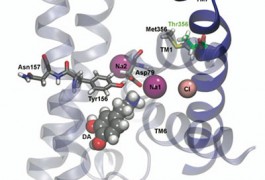Genetics: SHANK3 duplication leads to hyperactivity in mice
Mice with a duplication of SHANK3, a gene with strong links to autism, are hyperactive and manic, reports a study published 7 November in Nature.

Mice with a duplication of SHANK3, a gene with strong links to autism, are hyperactive and manic, reports a study published 7 November in Nature.

It’s common for children with autism to take more than one medication to improve symptoms, despite the dearth of information about the drugs’ long-term safety, according to two new studies.

Teenagers with autism have a penchant for cartoons and first-person shooter video games, but for at least some of them, screen time may translate to a useful social tool, two new studies suggest.

A newly discovered spontaneous mutation, described 27 August in Molecular Psychiatry, links autism to changes in the regulation of the chemical messenger dopamine.

Low levels of a thyroid hormone during pregnancy raise the risk of autism-like symptoms in the child by fourfold, according to a study published 13 August in Annals of Neurology.

Clinicians should place children under age 5 who have developmental delay into a broad diagnostic category, called ESSENCE, which may then resolve into any number of individual diagnoses over time, says Christopher Gillberg.

Two contradictory studies prompt questions about the reliability of self-report questionnaires in autism.

Age-based cutoff scores for BISCUIT, an early diagnostic tool for children with autism traits, help clinicians accurately identify children who also have other disorders, says Johnny Matson.

More of the common variants implicated in schizophrenia are also linked to bipolar disorder than to autism, according to a study published 28 August in Nature Genetics.

The most popular drugs prescribed for autism in some countries often have serious side effects or have not been vetted in robust clinical trials, finds a study published 5 September in Psychopharmacology.